‘Secret Lives: The Untold Story of British Hip Hop’ is a documentary by multidimensional creative Eunice Olumide MBE. Writer Leanne Elliott Young talks to Olumide at the exclusive premiere of the film during the 5th annual Windrush Caribbean Film Festival.
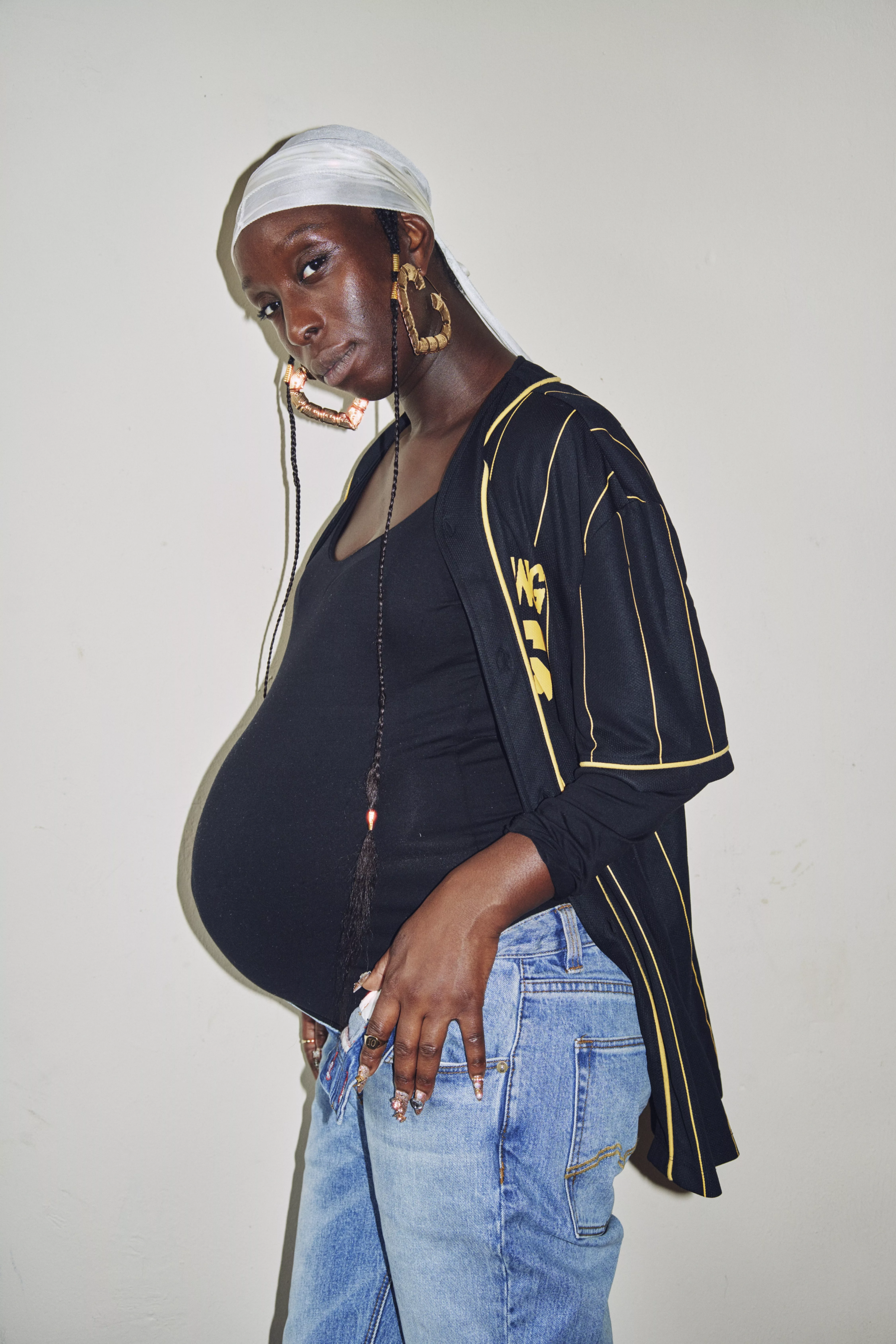
In the dimly lit corners of Britain’s music history lies a story untold, a narrative overshadowed by its more commercial counterparts. Eunice Olumide MBE’s documentary embarks on a journey through the transformative sounds and voices that have been inexplicably written out of mainstream music history. Her sensitive piece is built to shatter the silence surrounding the underground UK rap scene. I had the pleasure of sitting down with Olumide just moments before the premiere.
Olumide is an astonishing character, one with whom I’m mildly obsessed. I treasure every voice note from her, and admittedly, I repeat them often.
Olumide straddles many industries and roles in a Venn diagram of culture and is an advocate for “shit that just needs to be said!” She is a POC Scottish supermodel, an environmental activist, a gallerist, and is now stepping into two new roles at once: motherhood and film making. We had a wonderful conversation, discussing how these new ventures are aligned.
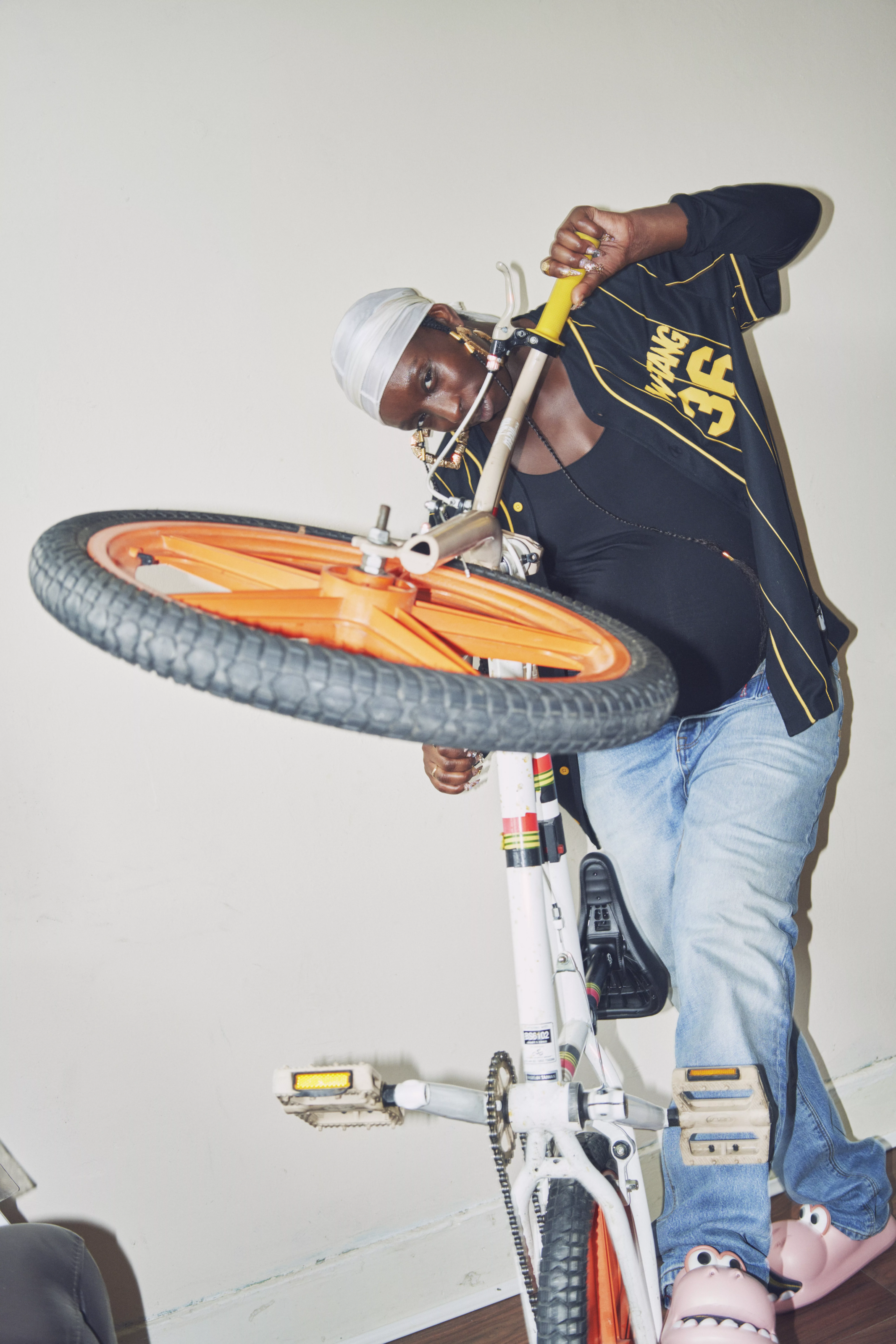
LEY: So, why this film now?
EOM: I actually started training as a teen as a second assistant director in film. In fact, I worked on a BAFTA award-winning film called Trouble Sleeping.
LEY: So you have come back to your calling then? It seems you have always been destined for this path—why did it take you till now? Is it because of the pregnancy?
EOM: There is a type of fetishisation of Afro-Caribbean women, which, for a long time meant we were only seen as being in front of the lens, and I felt alienated and pressured to become ‘a talent ‘ instead of a curator of the arts. And now I’m a mother so I’m channelling the earlier version of me.
LEY: So you are saying that at that point in your early career, the societal pressures to be on the other side of the lens won? Do you think this is a common curse?
EOM: I actually speak about this curse in the book ‘Loud Black Girls’ by authors Yomi Adegoke and Elizabeth Uviebinené. I had space with other women to discuss the cultural barriers, the struggle and unexpected paths inherent to being a black woman. And yes, I have felt that there isn’t space or acceptance.
LEY: Was writing about the struggle an inspiration to start again in film and be on the other side of the lens? Did having your challenges published give you the drive and acceptance to pick up the camera?
EOM: There’s something painfully beautiful about doing the right thing. I feel that, to truly live, you cannot have any fear of failure. You have to embrace it. I don’t believe in settling or accepting the status quo! And I genuinely believe that this is the right time for me to follow my true passion.
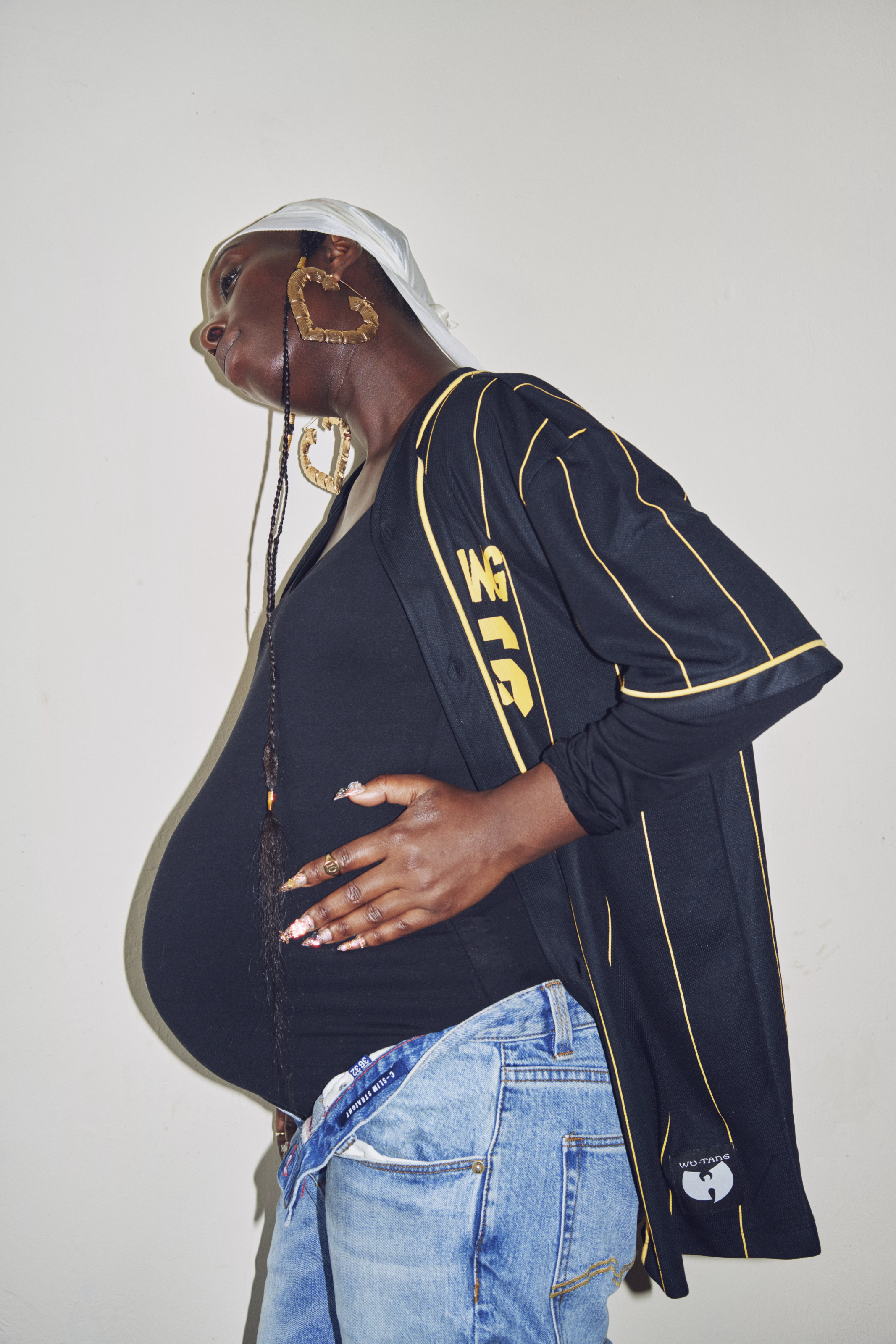
LEY: I really want to put that on a T-shirt! There’s something painfully beautiful about doing the right thing. Your career in the fashion industry, even as a model, has always come with that energy, making statements that push, and enquire. A reminder to not accept things how they are. Your London Fashion Week collection epitomises that and I remember back in 2019 your event Next Generation Regeneration: Fashion and Revolution. It really shook the London Fashion Week schedule by highlighting the Windrush scandal–it was so bold, the simple T-shirts, black with white text reading things like ‘Compensation not Detention.’ It’s where I first recognised your passion for using fashion as a vehicle for change. Are you seeing a movement or any changes in the status quo through your career span?
EOM: Although we as a nation have created a lot of diversity in front of the lens, we have a long way to go in diversifying those opportunities behind it. In the Western world, there are only a handful of Afro-Caribbean female directors, which means if you think about it historically all of the images you have seen and representations of black women are created by other races or men.
This has consistently led to largely inaccurate stories about how we think, act and live and has perpetuated many of the false stereotypes of black women which go right back to the early days of colonialism.
That means when someone like myself who doesn’t fit into a box or troupe shows up, PR’s, agents, commissioners and programmers are not sure how to work with or market us. History loves to give flowers and praise to people when they have passed away but to truly live and fight for equity does mean to be seen as unfavourable which I hope and pray one day we can reverse.
LEY: It really feels as though there is still so much to do. Lab Femmes de Cinéma released a new report on female directors in the European audiovisual industry, “A Qualitative Study on the Place of Female Directors in Europe” (authored by Lise Perottet). Using the European average for women filmmakers and historical trends, they found that gender parity between male and female directors will only be reached in 2080.
While gender balance is beginning to be apparent in film schools, the lab reports that only 23.92% of first or second feature directors are women, while the percentage plummets to 15.41% for a director’s third film and beyond. It states that having a child is a big reason for this drop, which is opposite to your situation right now.
In fact, let’s talk about the fact that you were extremely pregnant in the shots for this. What was the exact timeline for shooting, wrapping, the release, and then the subsequent release of your baby?
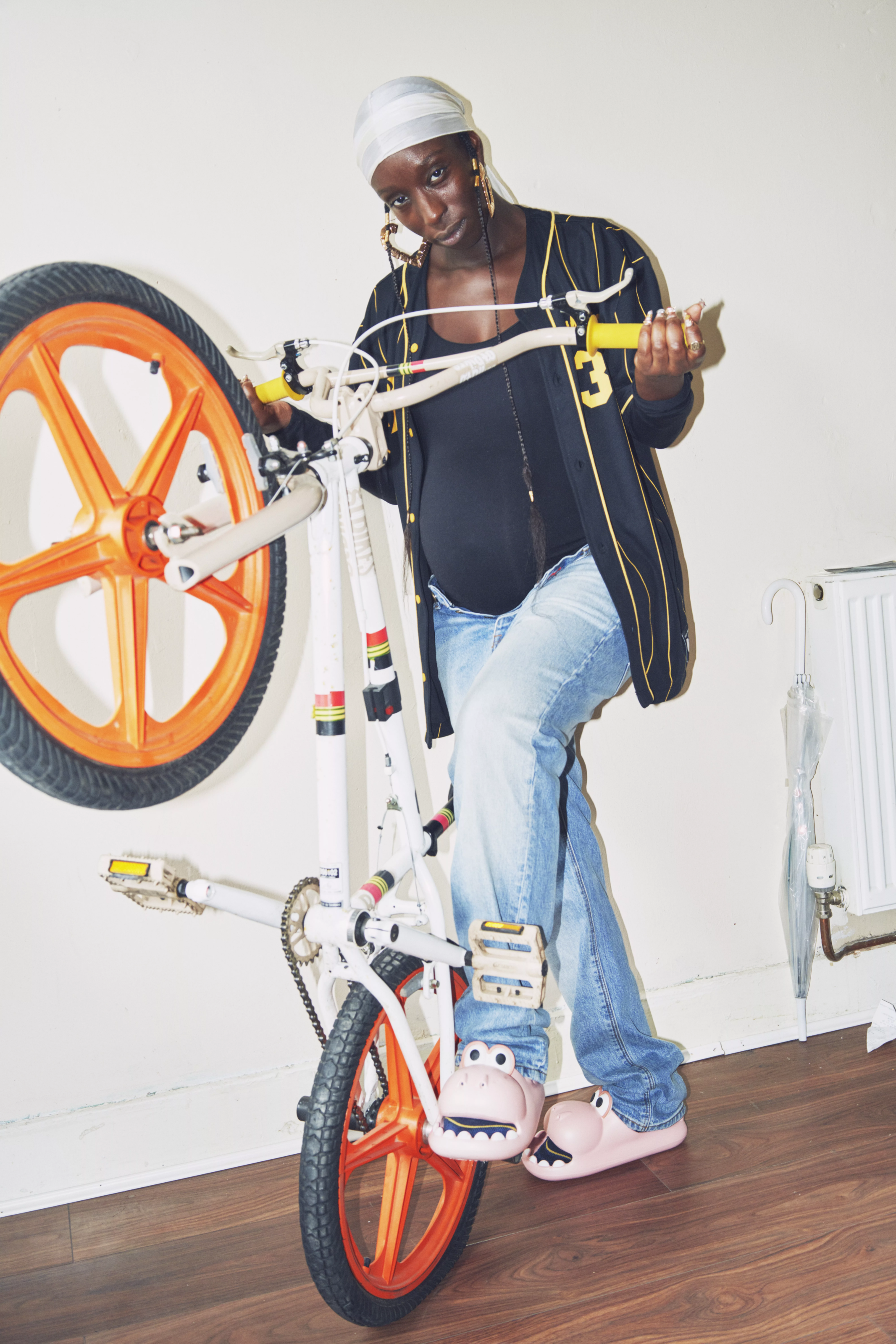
EOM: Yes, I was pregnant while editing the film, shooting and I was literally giving birth while sending it to film festivals.
The statistics are genuinely a serious issue and all too often we go along with these situations, just to keep the peace. For the few of us who do not conform we are then seen as having an issue or being difficult to work with instead of empowered.
These statistics are so wrong. I want to see the government, as well as the media and brands pay more attention to people who are pushing for change.
LEY: You deliver a lot of work to push for changes at the industry level with your seat at the British fashion council, and many other acclaimed positions. Is this work ever a burden, or is that what drives you?
EOM: On the one hand it can feel like a heavy weight. I learned many years ago that the reality is that the majority of people are simply not willing to sacrifice their careers, let alone their income, to make a difference for the greater good. I actually believe in free will, you can’t force people to have a social responsibility. It’s got to come from within, a kind of burning desire. For me it’s more something I have to do as opposed to what I want to do.
I think what is really damaging society right now is performative activism. There are too many people who really don’t care about changing anything who wait for things to become trendy and then create a presence online as if they are truly invested in a cause that they are not. I want to see more celebrations and cover stars that are local activists and heroes.
LEY: So you are now moving into film to drive a new vision for the face of representation— I imagine with your track record you can inspire some change and increase those shocking statistics! What was the first move back into film?
EOM: During lockdown I applied for the highly competitive Women in Television and Film course sponsored by Netflix. I was accepted, and my three minute short won best documentary. That was just incredible. It gave me the motivation to understand that I did have what it takes to make it as a filmmaker.
LEY : Wow. So why this film? What was it that made you feel you needed to shed light on the forgotten corners of the UK rap scene?
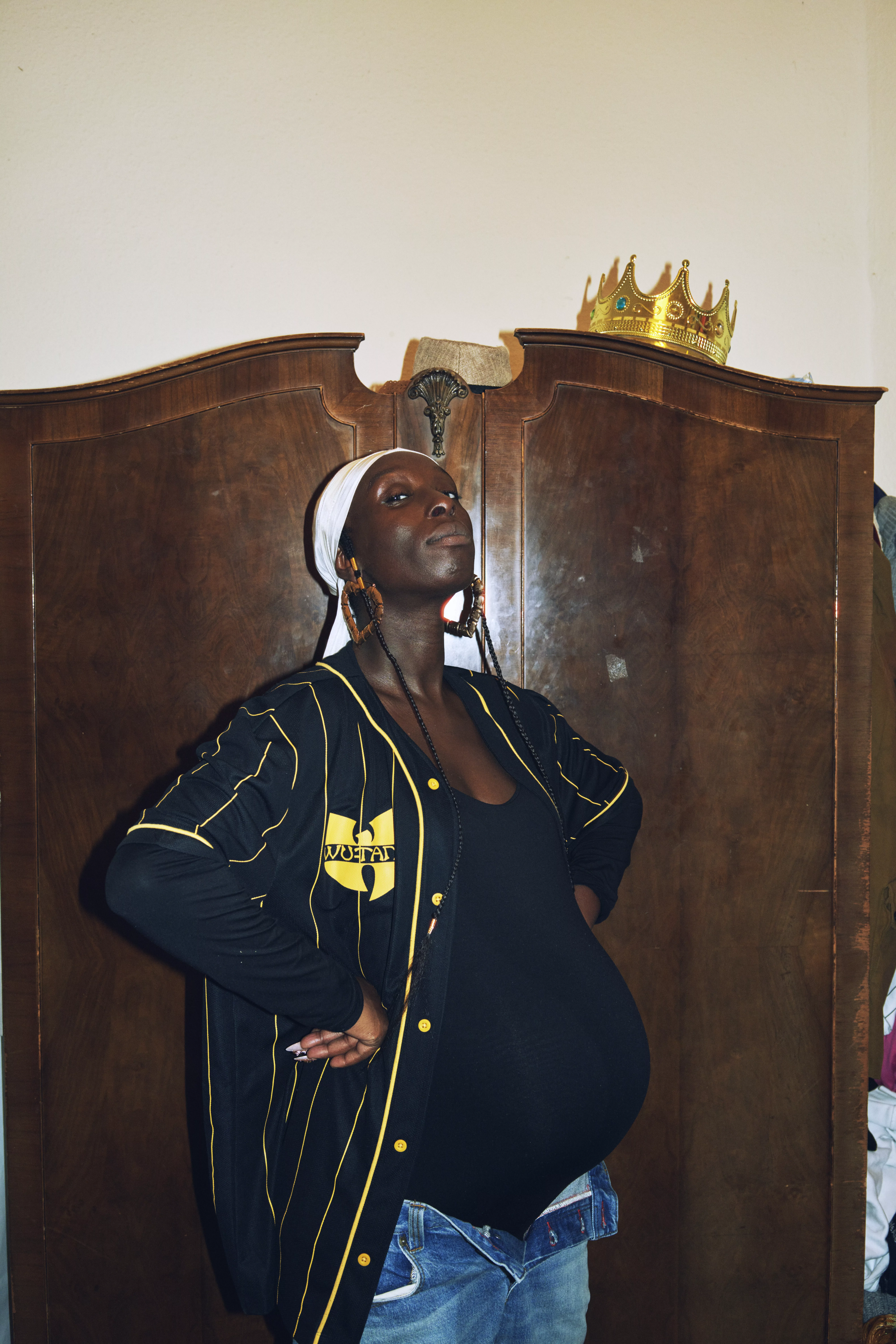
EOM: Throughout my life, it has been disparaging that most Black British history is told not only through an African American lens but also using what happened in the USA to plug in the gaping holes in our own archives. It was a very difficult topic since there is so little archive footage available and at that time when journalists would write about these artists it was in print publications which are not online.
The thing about hip hop, is that people take for granted its enormous impact on culture and society and they forget it is a multi billion dollar industry that has literally revolutionised not only music but fashion particularly in the 80’s and 90’s. Where it is today is a far cry from how it started out as protest music.
The commentary in this film underscores a critical issue: the erasure of Black British contributions from the broader historical context, especially in music. I felt I needed to make this film in honour of those who paved the way on the underground, conscious, non-commercial music scene who are missed but never forgotten, in a time of #, @ and google.
LEY: So, what’s next?
EOM: It was fascinating not only directing but producing the film. I feel confident now and I am looking forward to working on my first feature, and enjoying my new role in motherhood.
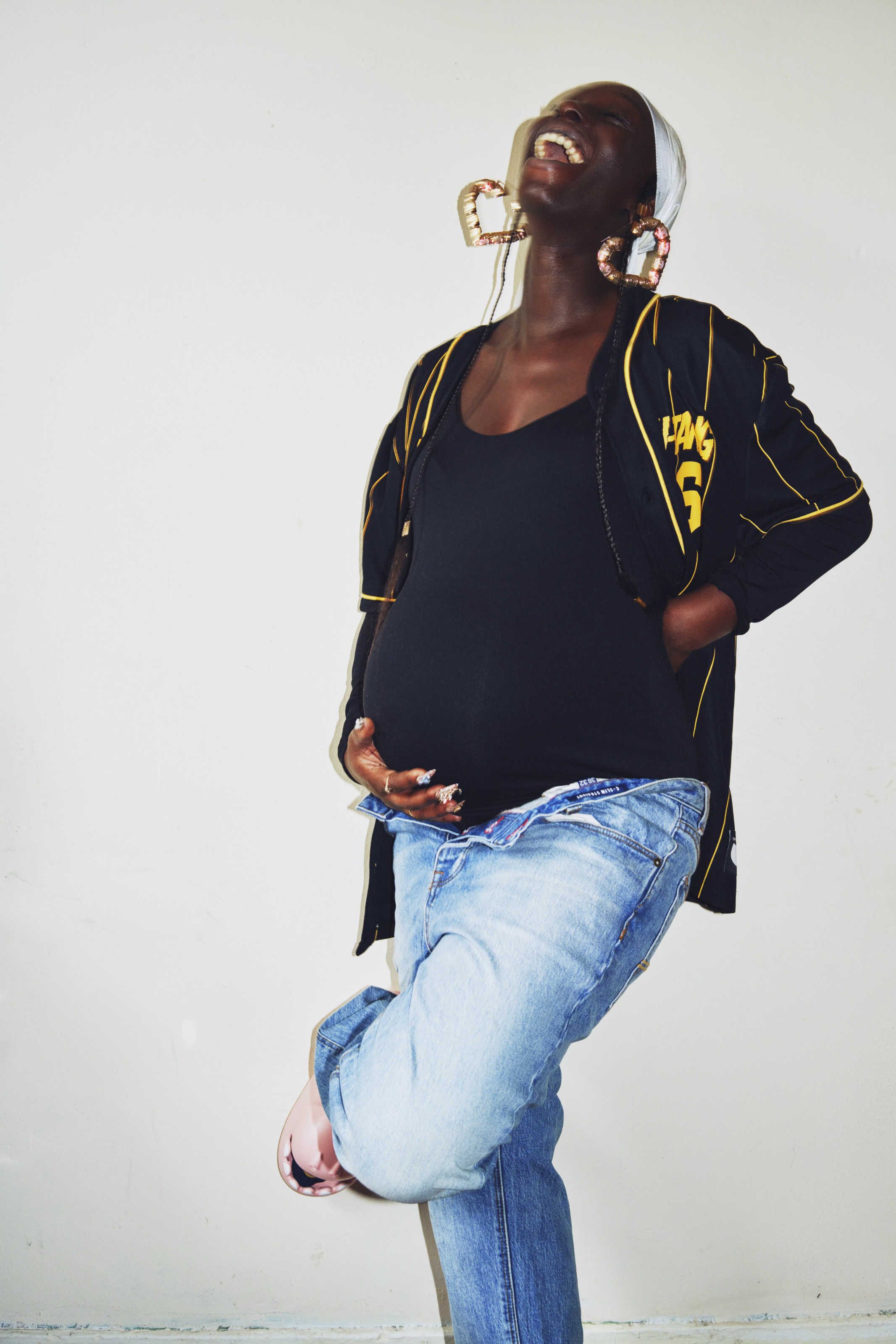
“Secret Lives” goes beyond the music. Olumide challenges history by highlighting this undervalued and almost silenced trajectory of music evolution, considering and bringing to attention to how technology has reshaped the landscape of music consumption and production
The release of “Secret Lives” is not just a cinematic event. It’s a cultural moment. It calls upon us to re-evaluate the historical narratives we’ve accepted and to acknowledge the unsung heroes of British hip hop.
Words by Leanne Elliott Young





